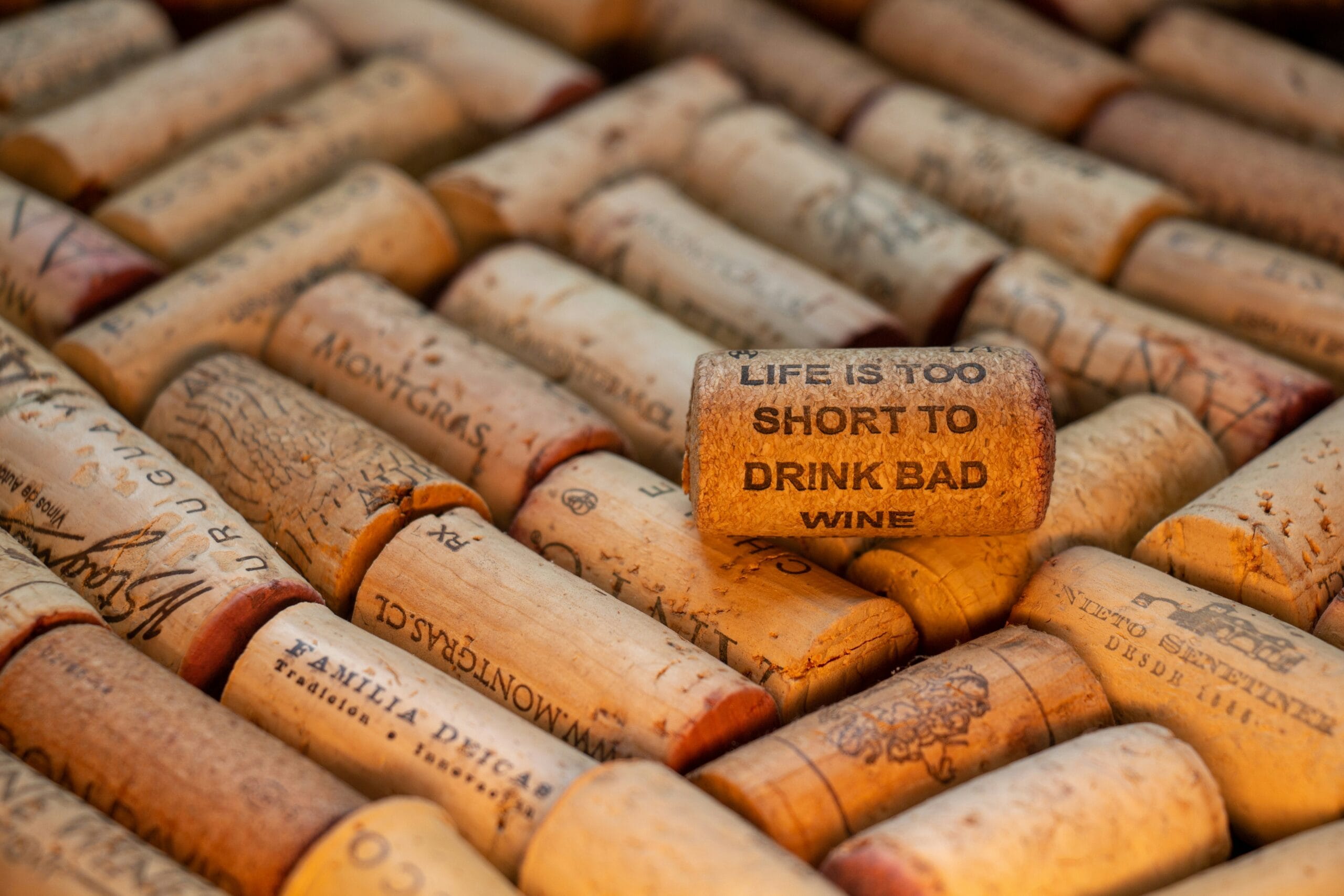The Essential Key to Fine Wine’s Flavor, Sustainability, and Tradition
Discover why corks are more than just bottle stoppers—they’re essential for aging, sustainability, and the timeless ritual that makes enjoying fine wine so special.
The Role of Corks
When you think about fine wine, perhaps the vineyard, the grape varietals, or even the winemaker come to mind first. But there’s one element that’s just as important, though often overlooked: the cork. This small, unassuming piece of bark is far more than a bottle stopper—it’s a guardian of tradition, a tool for aging, and an essential part of the wine experience.
Corks have been used to seal wine bottles for centuries, dating back to the 17th century when winemakers discovered that the porous nature of cork allowed for just the right amount of airflow. This slow exchange of oxygen over time is critical for wines meant to age, particularly fine reds and vintage whites. Unlike screw caps or synthetic closures, natural cork facilitates a delicate micro-oxygenation process. This process allows the wine to soften, its tannins to integrate, and its flavors to evolve into something far more nuanced than when it was first bottled. Without corks, the concept of aging wine to perfection as we know it simply wouldn’t exist.
But cork isn’t just about science—it’s about artistry and tradition. The ritual of opening a bottle sealed with a cork is an experience unto itself. The moment you cut away the foil, insert the corkscrew, and hear that satisfying “pop,” you’re connecting with hundreds of years of winemaking history. It’s an act that heightens anticipation, engaging your senses even before the wine touches your lips. The earthy scent of the cork, the tactile experience of pulling it out—it all adds to the magic of the moment.
And then there’s the symbolism. A cork represents care and craftsmanship. It’s a reminder that the wine inside was made with intention, designed to evolve and improve over time. Screwcaps, while functional and increasingly popular for certain styles of wine, lack this poetic touch. They’re efficient, yes, but they don’t carry the same sense of ceremony or connection to the natural world.
1
Aging Perfection
Cork’s porous nature allows a delicate oxygen exchange, vital for maturing fine wines and enhancing their complexity over time.
2
A Ritual of Tradition
The act of uncorking—a satisfying “pop” and tactile experience—connects us with centuries of winemaking history and enriches the sensory journey.
3
Symbol of Craftsmanship
A cork embodies care and intention, representing the artistry of winemaking and the promise of a wine designed to improve with age.

A Cork’s Reminder to Savor the Best
A simple cork, yet a powerful message—”Life is too short to drink bad wine.” This phrase encapsulates the philosophy of cherishing quality over quantity, celebrating the art of winemaking, and taking the time to enjoy life’s finer moments.
Overcoming Challenges and Championing Sustainability
Corks aren’t without their challenges. The issue of cork taint, caused by a compound known as TCA, has long been a concern for winemakers and drinkers alike. A tainted cork can ruin a bottle, giving the wine a musty, off-putting aroma. But thanks to modern advancements in cork production and quality control, this risk has significantly diminished. Today, most cork producers use rigorous testing methods to ensure their products are as reliable as they are natural.
Sustainability is another reason corks matter. Cork is harvested from the bark of cork oak trees, which regenerate after each harvest. This makes cork an environmentally friendly choice, particularly compared to synthetic alternatives. In fact, the cork industry supports vast ecosystems, especially in Portugal and Spain, where cork oak forests are home to diverse wildlife and play a critical role in combating climate change by capturing carbon. By choosing wines sealed with natural cork, you’re supporting both tradition and sustainability.
Ultimately, corks are more than just a way to keep wine in the bottle; they’re an essential part of what makes fine wine special. They honor the passage of time, protect the wine’s evolution, and heighten the sensory experience of drinking it. A bottle sealed with cork isn’t just about preserving the wine—it’s about preserving the story, the moment, and the artistry that went into creating it.
So, the next time you pull a cork from a bottle of fine wine, take a moment to appreciate it. That small piece of bark is more than just a tool—it’s a bridge between the winemaker, the vineyard, and your glass. It’s a testament to tradition, a promise of quality, and an invitation to savor not just the wine, but the journey it took to get there.




Leave a comment